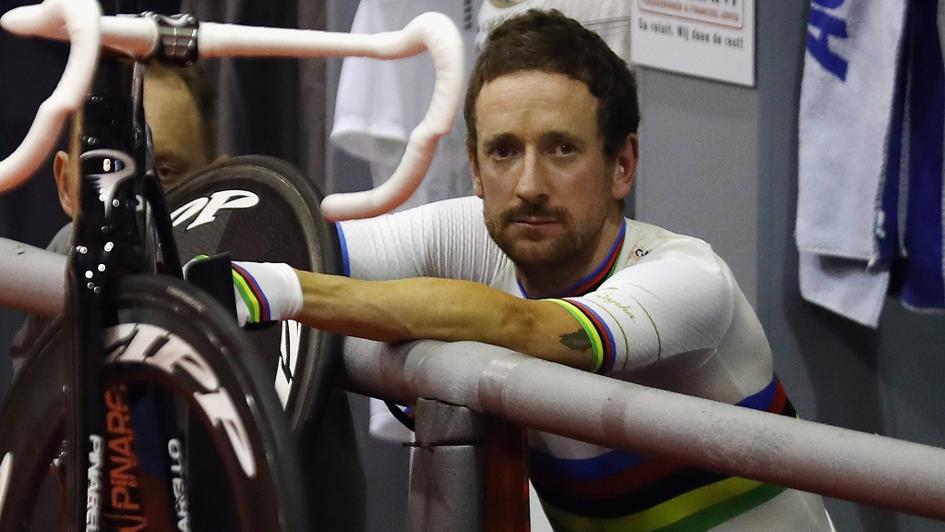
'Major questions outstanding' for British Cycling
The doctor at the centre of UK Anti-Doping's investigation into British Cycling and Team Sky has strongly defended his professional reputation in a written response to questions from the Culture, Media and Sport select committee.
Citing ill health, Dr Richard Freeman pulled out of an appearance before the panel of MPs on March 1, but a letter from the 56-year-old medic to its chairman Damian Collins has now been shared by the committee.
For the first time, Freeman himself states he asked for the now famous Jiffy bag' to be sent to him at the finish of the 2011 Criterium du Dauphine in France from the medical store at British Cycling's Manchester base, and that it contained "only Fluimucil".
Freeman, who left Team Sky in 2015 but still works for British Cycling, does not explain who this legal decongestant was for but it has already been confirmed by other sources that it was administered to the winner of the race - and Team Sky's then leader - Sir Bradley Wiggins.
The doctor, however, does write it was a Fluimucil "solution" for use in a nebuliser, which he thinks was not available in France, and that many doctors believe it to be "helpful in managing stage riders, who... are prone to chestiness and excess respiratory mucus production" because of the unique demands of the sport.
On why he asked ex-Team Sky coach Shane Sutton to arrange for a British Cycling employee to courier the package from Manchester, via London, to a ski resort in France, Freeman referred to the salutary lesson of Scottish skier Alain Baxter, who lost an Olympic medal in 2002 when he bought an over-the-counter nasal spray in the United States that contained a banned substance not used in the British version.
In response to why he was treating Wiggins, an asthmatic, with a drug not recommended for asthmatics, Freeman said he only did so after racing to avoid "unwanted immediate side-effects". But on this point, and several others, Freeman kept his explanation brief, writing that patient confidentiality prevented him from a more detailed answer.
This, for example, was his response to the committee's questions about triamcinoline, the banned corticosteroid an anonymous whistle-blower has claimed Freeman gave to Wiggins on the Team Sky bus that day - the central allegation being investigated by UKAD.
Freeman, Team Sky and Wiggins have denied this and UKAD boss Nicole Sapstead has already told the panel she is unable to prove or disprove this allegation, or the Fluimucil explanation, because Freeman's medical records are missing and there is no paper-trail in Manchester.
Freeman wrote he has only ever personally given triamcinolone to one rider at British Cycling and Team Sky, who we already know to be Wiggins, and is "aware of only a handful of riders in either team" who have needed the powerful anti-inflammatory for clinical and ethical reasons.
Wiggins was given a therapeutic use exemption (TUE) - a special allowance to use a banned substance for medical reasons - for the drug before his biggest races in 2011, 2012 and 2013, including his 2012 Tour de France triumph.
"I am not and have not been concerned that the TUE process is abused by athletes in relation to my clinical experience and practice," wrote Freeman, who gave a similar response on Team Sky's "infrequent" use of Tramadol, a painkiller that is not banned but is controversial within cycling and has been on the World Anti-Doping Agency's watch list for five years.
Freeman does, however, acknowledge failings with his records, which have already been criticised by the CMS committee and UKAD.
The former Bolton Wanderers team doctor wrote how he and clinical director Dr Steve Peters, a leading psychiatrist, moved British Cycling and Team Sky away from the paper-based record-keeping system they inherited to the cutting-edge system they use now, with the shareable 'Dropbox' used in 2011 a step in that process.
Freeman, however, struggled with the Dropbox and kept his notes on his laptop, which he lost on holiday in Greece in 2014.
"I did not routinely upload these notes to Dropbox, which I found difficult to use, having ongoing concerns about its security and greater confidence in my own system of note-keeping," he wrote.
"I accept it would have been desirable to have backed up my clinical records, whatever system was used. I regret not doing this."
Freeman bookends his letter with positive statements about his own work in the sport, his strong working relationships with coaches and riders and the integrity of everybody involved in British cycling, including the besieged Team Sky boss Sir Dave Brailsford.
Collins, however, is not satisfied all of the committee's questions have been answered and left open the possibility that Freeman will be called again to give oral evidence if his health improves.
In a press release, the Conservative MP for Folkestone and Hythe said: "Once again, this new evidence leaves major questions outstanding for Team Sky and British Cycling.
"In particular, why were no back-up medical records kept for Bradley Wiggins in 2011, beyond those on Dr Freeman's laptop computer? Why were there not more formal protocols enforced on record-keeping, and whose responsibility was it to make sure that Team Sky's own stated policies were being enforced?"
MOST READ
Next Off
Fixtures & Results



















